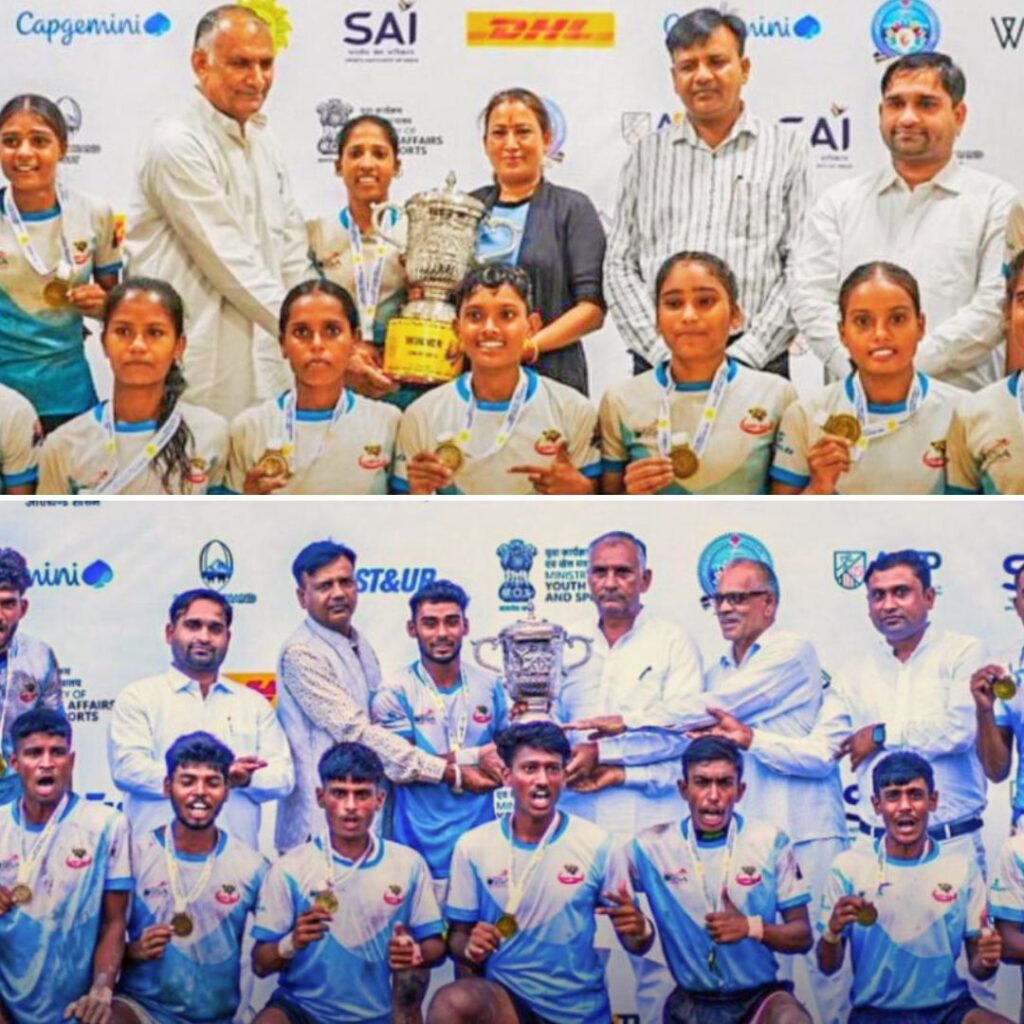While most of do not contemplate twice before throwing away trash, there is but one man who makes complex science theories simple by using the ‘rubbish’ that we discard.
Arvind Gupta, who works at the Children’s Science Centre in Pune, is an inventor of toys that have made science popular among children. He creatively illustrates various principles of science by designing simple toys out of trash and everyday items.
For over 30 years, this innovative science educator and toy creator has been teaching the world how to make Toys from Trash – documenting approximately 1300 videos on his website.
Arvind Gupta teaching students using Toys from Trash The Canberra Times
He has also authored several books, including Little Toys, Amazing Activities, Science from Scrap, and Science Skills & Thrills: The Best of Arvind Gupta. They are available in English, Hindi and other Indian languages. His Low-Cost Equipment for Science and Technology Education is available in a PDF download through UNESCO.
His inspiration
In an exclusive interview with The Logical Indian, Arvind Gupta talked about his inspiration behind the initiative. “I am a product of the 1970s. The political slogan in that decade which inspired many was – Go to the people, live with them, love them. Start from what they know, build on what they have. As a student of IIT Kanpur, I taught the children of the mess staff. Later, I was inspired by the Hoshangabad Science Teaching Program aimed at making science fun for children, using low-cost activities,” he said.
Arvind Gupta has visited 3000 schools in India, ranging from the poorest villages to the most elite ones, and the response from children who are bored of monotonous science curriculums has always been overwhelming.
Toys from Trash
India is known for its tradition of creating local toys, yet teaching art and craft to our youth is one of the most neglected aspects of our cultural heritage.
Arvind Gupta highlighted the creation of simple toys from trash in this regard.
He covers a range of topics in his creation, including air and water, electricity and magnetism, flying toys, concepts of pressure, light, mathematics, sound, Newtonian concepts, paper toys, spinning toys, and motor and generator-based toys, among many others.
Some of the basic toys created by him are matchstick models, powered bottle car, simple balloon boat, simple balloon boat, ball trampoline, polythene parachute, dugdugi – drum rattle, and cola can digestive system.
Speaking to The Logical Indian, Arvind Gupta said, “All children like toys which are dynamic – the ones that can spin, fly, jump, make noise and move. And if you can make them from scraps of paper – jumping frog, flapping bird, flying fish – or old matchboxes, plastic bottles then every child can make them, whether they are rich or poor. The children who come to our science center hardly eat their tiffins or go to the washroom – they are so busy making things and playing with them!”
He further added that the toys are not for any specific age group. “We believe if you can show people to make extraordinary artifacts from ordinary things, they are bound to like and appreciate it. Children do not like to study fat textbooks but all children like to play. And we help kids make their own toys using scrap and other throw-away items. We genuinely feel that our work must be free and accessible to the poorest children on Earth.”
Challenges
India has witnessed phenomenal growth owing to its human resources – hundreds of engineering, medical and management students graduate every year. However, various surveys on employment have revealed that engineering graduates in India often lack the required analytical and logical thought processes. This can be blamed on the culture of learning by rote for examinations because when it comes to learning science, children are limited to books and are not actually understanding its theories in a practical manner.
“Children have great fun making things. But the problem is with teachers who come from a mutilated – almost dead system. To reorient them from rote learning to ‘activity based fun learning’ is an immense challenge even today. It can’t be done by fiat or a government order. We need real role models – and there aren’t too many,” said Mr Gupta.
Regarding additional challenges, he further stated, “Hoshangabad Science Teaching Program was shut down by the government. No government, whether of the left or right, wanted an enlightened populace. Rulers don’t want people to question them. I have tried to share a lot of educational resources – the best books on education, environment, science, math, and children’s books on my website so that any learner could access them for free. Among the 1.3 population of India, there are many who want to learn. Every day 15,000 books are downloaded. We also make short films to make science fun for the poorest children around the globe. Our videos have been…











